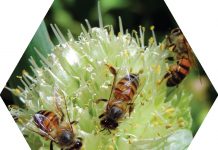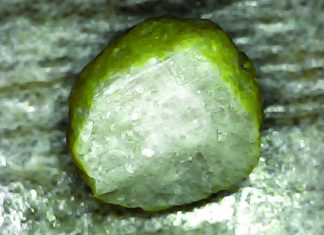June 2018
WIANA LOUW, general manager, SAGL
The Southern African Grain Laboratory (SAGL)’s Crop Protection test facility achieved OECD Good Laboratory Practice compliance during July last year. This means that results of studies conducted at the facility can be accepted by other countries.
What is the OECD?
The Organisation for Economic Co-operation and Development (OECD), with 35 member countries, focuses on global economic development and assists the governments to respond to social, economic and scientific issues. South Africa is a key partner of the OECD since 2007.
The Mutual Acceptance of Data system, developed by the OECD, is an agreement signed by the participating countries and key partners to share the results of various studies on chemicals to reduce duplicative testing and allows countries to work together.
These studies must be conducted according to the OECD Principles of Good Laboratory Practice. The aim of the OECD principles is to create a level playing field for participating countries involved in import and export of chemicals to minimise the effects of non-tariff barriers between these countries.
Good Laboratory Practice according to the principles of OECD is the quality system prescribing the conditions under which non-clinical health and environmental safety studies are planned, performed, monitored, recorded, archived and reported.
When an OECD Good Laboratory Practice study is conducted the focus areas include record keeping, traceability to prevent fraud, and verification of the obtained results to ensure that, if needed, the study can be reconstructed.
Unique to the OECD Good Laboratory Practice principles are the monitoring of the testing facility, including the storage area and prevention of contamination, and testing processes according to the study plans. Also unique are the availability of master schedules for all the studies conducted at the facility and the recording and archiving of test results.
ISO accreditation
To enhance the technical competence in the SAGL Crop Protection Division, the laboratory also obtained ISO 17025 accreditation. Part of achieving and maintaining ISO 17025 accreditation is the continuous proof of technical competency, including method validations, and international comparability and traceability to international standards through the participation in international proficiency schemes.
The Crop Protection Division also ensures that their staff members stay up to date with local and international regulatory and technical requirements and support international guidance documents through their international involvement.
Currently the division is performing OECD Good Laboratory Practice studies for international companies as well as companies in South Africa that want to register and export products to other countries that require OECD Good Laboratory Practice studies.
Excellence is not only in having a result or a report to submit to the authorities, but to know that the results reported is accurate and the report is a true reflection of the study conducted.
Publication: June 2018
Section: Relevant

















